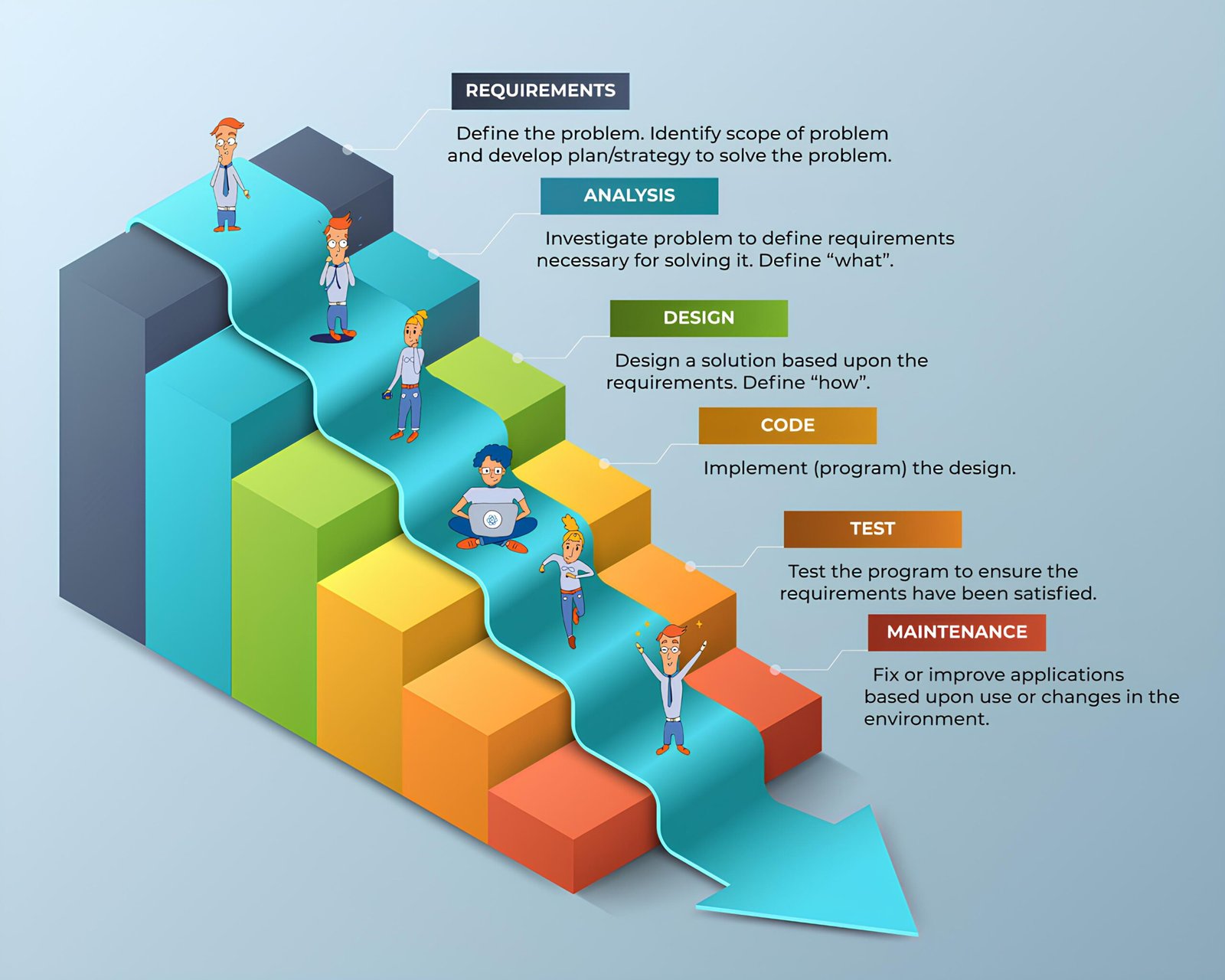AI in software development
The rapid advancement of technology has brought about significant changes in various industries, and software development is no exception. The integration of artificial intelligence (AI) in software development has revolutionized the way we create, test, manage, and secure software applications.
AI refers to the emulation of human intelligence processes by machines, granting them the ability to learn, reason, and make decisions independently. In this article, I will explore the impact of AI in software development, the tools and techniques used, its role in testing and quality assurance, project management, security, and cybersecurity, as well as the ethical considerations surrounding its use.
Impact of AI in software development
AI has had a deep impact on software development, transforming traditional approaches and paving the way for more efficient and intelligent solutions. With AI, developers can automate ordinary and repetitive tasks, allowing them to focus on more complex and creative aspects of software development.
AI-powered algorithms can analyse vast amounts of data, identify patterns, and make predictions, enabling developers to make informed decisions and deliver high-quality software. Moreover, AI has greatly improved the accuracy and speed of software development processes. Machine learning algorithms can learn from existing codebases and provides suggestions for code optimization, bug detection, and even generating code snippets.
This not only saves time but also enhances the overall performance and reliability of software applications. AI-powered development tools have become essential in the modern software development landscape, enabling developers to streamline their workflows and deliver innovative solutions.
AI-powered development tools and techniques
AI has given rise to a wide range of development tools and techniques that have transformed the software development process. Natural Language Processing (NLP) algorithms, for instance, enable developers to communicate with computer systems in a more natural and human-like manner. This allows for easier code generation, documentation, and collaboration among developers.
Additionally, AI-powered code editors and integrated development environments (IDEs) provide intelligent code completion, syntax highlighting, and error detection. These tools analyse code patterns, detect potential bugs, and offer suggestions for improved code quality. They can also adapt to a developer’s coding style and preferences, further enhancing productivity.
Another valuable application of AI in software development is in the field of automated testing. AI-driven testing tools can generate test cases, execute them, and analyse the results, significantly reducing the time and effort required for manual testing. These tools can identify potential vulnerabilities, performance bottlenecks, and compatibility issues, ensuring the delivery of robust and reliable software.
AI in software testing and quality assurance
Software testing and quality assurance plays a crucial role in ensuring the reliability and functionality of software applications. AI has introduced innovative techniques that enhance the efficiency and effectiveness of these processes. Machine learning algorithms can analyse large datasets of test cases, identify patterns, and predict potential issues. This enables developers to prioritize and focus on critical areas, improving the overall quality of software.
Furthermore, AI-powered testing tools can simulate real-world scenarios, allowing for more comprehensive and realistic testing. These tools can automatically generate test cases based on user behavior patterns, perform stress testing, and even simulate network conditions. By leveraging AI in software testing and quality assurance, developers can deliver software that meets the highest standards of performance and user satisfaction.
AI in software project management
AI has also made notable progress in enhancing software project management. Project management involves coordinating various tasks, resources, and timelines to ensure the successful completion of a software project. AI-driven project management tools have the capability to automate project tracking, resource allocation, and progress monitoring.
These tools can analyse historical project data, identify potential risks, and provide recommendations for mitigating them. They can also optimize resource allocation based on past performance, ensuring efficient utilization of time and manpower. AI in project management helps streamline workflows, improve productivity, and minimize the risk of project delays or failures.
AI in software security and cybersecurity
As software applications become more complex and interconnected, the need for robust security measures becomes paramount. AI has emerged as a formidable ally in combating cyber threats and vulnerabilities. AI-powered security tools can detect and analyse patterns of suspicious behavior, identify potential security breaches, and respond in real-time to mitigate risks.
Machine learning algorithms can learn from historical data to identify new threats and adapt to evolving attack techniques. These tools can also automatically patch vulnerabilities, ensuring the ongoing security and integrity of software applications. AI in software security and cybersecurity helps organizations stay one step ahead of cybercriminals and safeguard sensitive data.
Ethical considerations of AI in software development
While the potential benefits of AI in software development are vast, it is essential to address the ethical considerations surrounding its use. AI algorithms learn from historical data, which means they can inherit biases present in the data. This raises concerns about fairness, accountability, and transparency in decision-making processes.
Additionally, the automation of certain tasks through AI may result in job displacement for some software developers. It is crucial to strike a balance between leveraging AI to increase productivity and ensuring that human creativity and expertise are still valued and utilized.
To address these ethical concerns, developers and organizations must prioritize fairness, diversity, and inclusivity in their AI systems. They should also advocate for transparent and explainable AI algorithms, ensuring that decisions made by AI systems can be understood and justified.
The future of AI in software development
The future of AI in software development is incredibly promising. As AI technologies continue to advance, we can expect even greater automation and intelligence in the software development lifecycle. AI algorithms will become more sophisticated in understanding natural language, enabling developers to communicate with machines in a more intuitive and conversational manner.
We will witness the emergence of AI-powered virtual assistants that can provide real-time suggestions, code snippets, and even assist in debugging. AI will also play a crucial role in enabling the development of complex and intelligent software applications, such as autonomous vehicles, smart cities, and advanced robotics.
AI-driven automation in software development
Automation plays a crucial role in software development, and AI has taken it to the next level. AI-driven automation tools can automatically test software, detect bugs, and even suggest fixes. This not only saves time and effort but also improves the overall quality of the software.
Continuous Integration and Continuous Deployment (CI/CD) pipelines can be enhanced with AI, enabling the automatic building, testing, and deployment of software. This streamlines the development process, reduces human intervention, and ensures faster and more reliable software releases. Furthermore, AI-powered project management tools can analyse data, predict risks, and optimize resource allocation, enabling more efficient and effective software development workflows.
Advantages of integrating AI in software development
Integrating AI in software development provides numerous advantages. Firstly, it enhances productivity by automating routine tasks such as code generation, bug detection, and testing. This allows developers to focus on more complex and creative aspects of software development, accelerating the overall process.
Secondly, AI enables software applications to continuously learn and improve over time. Through machine learning algorithms, software can analyse user behavior, preferences, and feedback, leading to personalized recommendations and enhanced user experiences.
Furthermore, AI can significantly improve the accuracy and reliability of software by detecting errors, vulnerabilities, or potential performance issues. By leveraging AI-powered tools, developers can identify and address these issues at an early stage, ensuring the delivery of high-quality software.
Challenges and constraints associated with AI in software development
While the potential of AI in software development is vast; there are still challenges and limitations that need to be addressed. One of the major challenges is the availability of high-quality and diverse training data. AI algorithms depend significantly on data to acquire knowledge and generate predictions. Insufficient or biased data can lead to inaccurate results and flawed decision-making.
There is also a challenge in ensuring the reliability and interpretability of AI-driven decisions. Complex AI algorithms can be challenging to understand and debug, making it difficult to identify and rectify potential issues. Developers must work towards creating AI systems that are transparent, explainable, and accountable.
Moreover, the ethical implications of AI in software development, as mentioned earlier, require careful consideration and proactive measures to address biases and ensure fairness. It is essential to strike a balance between the benefits of AI and the potential risks and challenges it poses.
Future trends and possibilities of AI in software development
The future of AI in software development looks promising. As AI technologies continue to advance, we can expect more sophisticated tools and frameworks that enable developers to create intelligent and autonomous software applications.
The integration of AI with other emerging technologies such as block chain, Internet of Things, and augmented reality (AR) opens up new possibilities. For instance, AI can enhance the security and efficiency of block chain-based applications, enable intelligent devices, and provide personalized AR experiences.
Moreover, AI-driven software development ecosystems can foster collaboration and knowledge sharing among developers. AI-powered code completion, documentation generation, and bug detection will become more advanced, making software development more efficient and accessible.
the transformative impact of AI in software development
AI has undoubtedly revolutionized the field of software development, bringing about unprecedented opportunities for efficiency, innovation, and intelligence. From AI-powered development tools and techniques to enhanced software testing, project management, and security, the impact of AI is undeniable.
However, it is crucial to approach the integration of AI in software development with careful consideration of ethical implications, transparency, and fairness. By embracing the AI revolution while addressing its challenges and limitations, we can unlock the full potential of AI in shaping the future of technology.
Subscribe to our newsletter to receive future updates on Technology, Artificial Intelligence (AI), and Tech Trends. Explore our categories to find more relevant stuff. Stay informed and motivated with our most recent insights!




